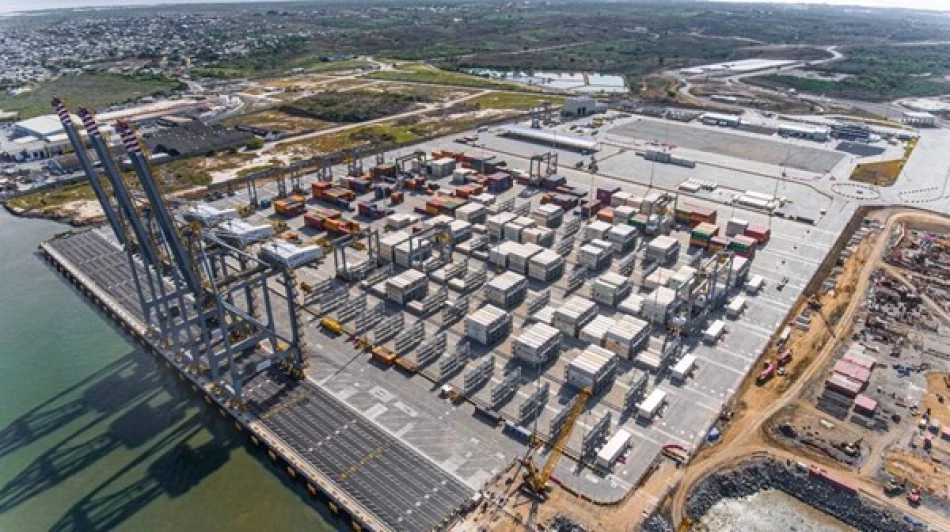
Dubai Ports Operator Invests $4.5B in Global Expansion Projects by 2025
DP World's $4.56 Billion Global Expansion Signals New Era of Trade Infrastructure Competition
Dubai's DP World is reshaping global trade routes with an aggressive $4.56 billion investment spree across five continents, positioning itself as a dominant force in the post-pandemic supply chain restructuring. The port operator's strategic expansion into Africa, South America, Europe, Asia, and Australia reflects a calculated bet on emerging trade corridors and the growing demand for resilient logistics infrastructure.
Strategic Positioning in High-Growth Markets
DP World's investment strategy reveals a sophisticated understanding of shifting global trade patterns. Rather than focusing solely on established routes, the company is building capacity in markets poised for significant growth over the next decade.
Africa: Building the Infrastructure of Tomorrow
The company's African investments demonstrate particular strategic foresight. In the Democratic Republic of Congo, DP World is developing a deep-water port in Banana on the Atlantic coast with an annual capacity of 450,000 containers. This positions the company to capitalize on Africa's projected economic growth and increasing integration into global supply chains.
In Senegal, the $830 million Ndayane port project on West Africa's coast will handle 1.2 million containers annually, creating a new gateway for landlocked Sahel countries and positioning DP World ahead of Chinese competitors who have dominated African port development in recent years.
South America: Capturing Agricultural Export Growth
The $1 billion expansion of Peru's Callao port, building on $400 million invested in 2024, targets the booming agricultural export sector. With productivity increases of 80% through expanded berths and modern electric equipment, this investment aligns with global food security concerns and Peru's position as a major grain and vegetable exporter.
Similarly, the $140 million expansion of Ecuador's Posorja port extends the wharf to 700 meters, allowing two Post-Panamax vessels to dock simultaneously—a clear response to the shipping industry's trend toward larger vessels.
Developed Market Consolidation Strategy
Europe and Australia: Strengthening Established Networks
DP World's $1 billion investment in London Gateway expansion, including two new shipping berths and an additional rail terminal, strengthens its position in post-Brexit Britain and European trade flows. This move contrasts with some competitors' retreat from European markets amid regulatory pressures.
The $265 million rail terminal expansion at Sydney's Port Botany, developed with NSW Ports, will increase capacity from 400,000 to one million containers annually. This investment capitalizes on Australia's role as a commodity exporter and its growing trade ties with Asia.
Geopolitical Calculations and Market Opportunities
Syria Investment: High Risk, High Reward
Perhaps most intriguing is DP World's $800 million, 30-year build-operate-transfer agreement for Syria's Tartus port. This investment signals confidence in Syria's eventual economic reconstruction and positions DP World to benefit from renewed regional trade flows. The deal includes developing multipurpose terminals and free industrial zones, potentially creating a new logistics hub for Levantine trade.
Technology and Sustainability: Future-Proofing Operations
Beyond geographical expansion, DP World is investing heavily in operational efficiency and environmental compliance. The deployment of electric truck fleets at Jebel Ali port, capable of handling 204,000 containers annually, demonstrates the company's commitment to sustainability—increasingly important for securing contracts with environmentally conscious shippers.
Market Implications and Competitive Landscape
DP World's expansion comes as global trade patterns shift away from China-centric supply chains toward more diversified networks. The company's investments in India, Africa, and South America position it to benefit from "nearshoring" and "friend-shoring" trends.
This strategy puts DP World in direct competition with Chinese state-owned enterprises like COSCO Shipping Ports, which have dominated port development in emerging markets. However, DP World's private sector efficiency and Dubai's neutral geopolitical stance may prove advantageous in securing new contracts.
Investment Outlook and Growth Trajectory
The scale and geographic diversity of these investments suggest DP World expects significant growth in global trade volumes over the next decade. The company's focus on container capacity expansion—adding millions of TEU across multiple continents—indicates confidence that supply chain disruptions will drive demand for additional port infrastructure.
For investors, DP World's aggressive expansion represents both opportunity and risk. The company is betting heavily on emerging markets while maintaining strong positions in developed economies, creating a balanced portfolio that could deliver substantial returns if global trade continues recovering from pandemic-era disruptions.
Most Viewed News

 Layla Al Mansoori
Layla Al Mansoori






